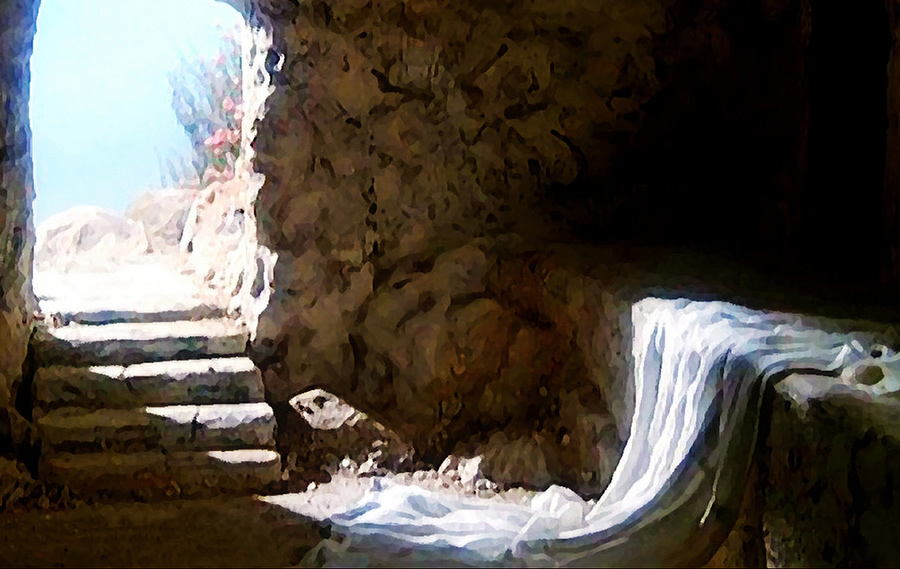
On the Third Day He Rose from the Dead
04-09-2023Weekly ReflectionThe Resurrection of Jesus is the crowning truth of our faith in Christ, a faith believed and lived as the central truth by the first Christian community; handed on as fundamental by Tradition; established by the documents of the New Testament; and preached as an essential part of the Paschal mystery along with the cross: Tradition means the faithful handing down of the truths of Jesus Christ, His words and deeds by the Apostles and their successors.
Mary Magdalene and the holy women who came to finish anointing the body of Jesus, which had been buried in haste because the Sabbath began on the evening of Good Friday, were the first to encounter the Risen One. Thus the women were the first messengers of Christ's Resurrection for the apostles themselves. They were the next to whom Jesus appears: first Peter, then the Twelve. Peter had been called to strengthen the faith of his brothers, and so sees the Risen One before them; it is on the basis of his testimony that the community exclaims: "The Lord has risen indeed, and has appeared to Simon!"
Everything that happened during those Paschal days involves each of the apostles - and Peter in particular - in the building of the new era begun on Easter morning. As witnesses of the Risen One, they remain the foundation stones of his Church. The faith of the first community of believers is based on the witness of concrete men known to the Christians and for the most part still living among them. Peter and the Twelve are the primary "witnesses to his Resurrection", but they are not the only ones - Paul speaks clearly of more than five hundred persons to whom Jesus appeared on a single occasion and also of James and of all the apostles. Given all these testimonies, Christ's Resurrection cannot be interpreted as something outside the physical order, and it is impossible not to acknowledge it as an historical fact. Even when faced with the reality of the risen Jesus the disciples are still doubtful, so impossible did the thing seem: they thought they were seeing a ghost. "In their joy they were still disbelieving and still wondering." Thomas will also experience the test of doubt and St. Matthew relates that during the risen Lord's last appearance in Galilee "some doubted." Therefore the hypothesis that the Resurrection was produced by the apostles' faith (or credulity) will not hold up. On the contrary their faith in the Resurrection was born, under the action of divine grace, from their direct experience of the reality of the risen Jesus.
By means of touch and the sharing of a meal, the risen Jesus establishes direct contact with his disciples. He invites them in this way to recognize that he is not a ghost and above all to verify that the risen body in which he appears to them is the same body that had been tortured and crucified, for it still bears the traces of his Passion. Yet at the same time this authentic, real body possesses the new properties of a glorious body: not limited by space and time but able to be present how and when he wills; for Christ's humanity can no longer be confined to earth, and belongs henceforth only to the Father's divine realm.
For this reason too the risen Jesus enjoys the sovereign freedom of appearing as he wishes: in the guise of a gardener or in other forms familiar to his disciples, precisely to awaken their faith. Christ's Resurrection was not a return to earthly life, as was the case with the raisings from the dead that he had performed before Easter: Christ's Resurrection is an object of faith in that it is a transcendent intervention of God himself in creation and history. In it the three divine persons act together as one, and manifest their own proper characteristics. The Father's power "raised up" Christ his Son and by doing so perfectly introduced his Son's humanity, including his body, into the Trinity. Jesus is conclusively revealed as "Son of God in power according to the Spirit of holiness by his Resurrection from the dead". St. Paul insists on the manifestation of God's power through the working of the Spirit who gave life to Jesus' dead humanity and called it to the glorious state of Lordship. "If Christ has not been raised, then our preaching is in vain and your faith is in vain. The Resurrection above all constitutes the confirmation of all Christ's works and teachings. The truth of Jesus' divinity is confirmed by his Resurrection. He had said: "When you have lifted up the Son of man, then you will know that I am he."
BACK TO LIST